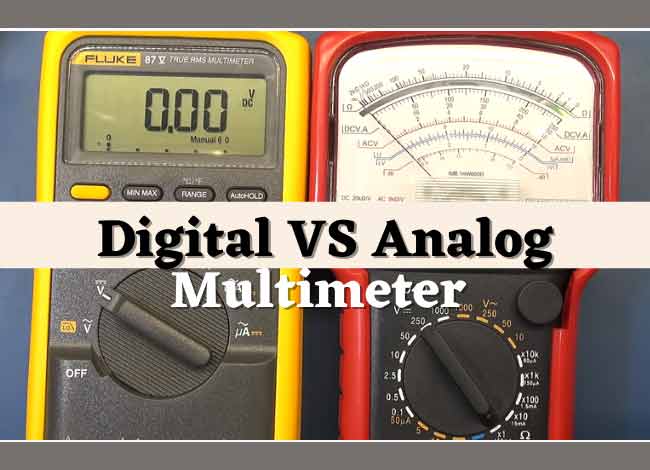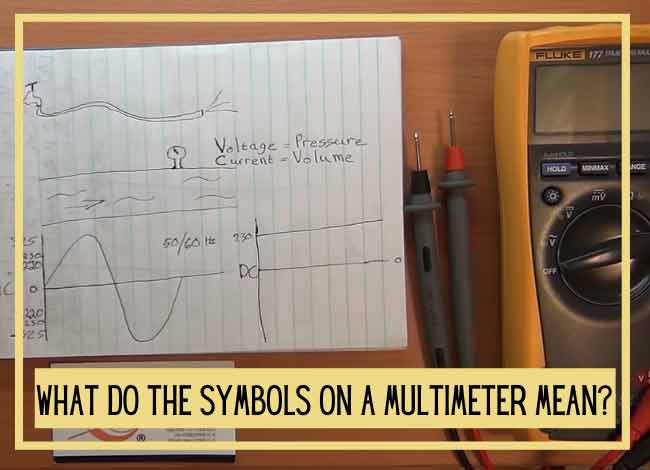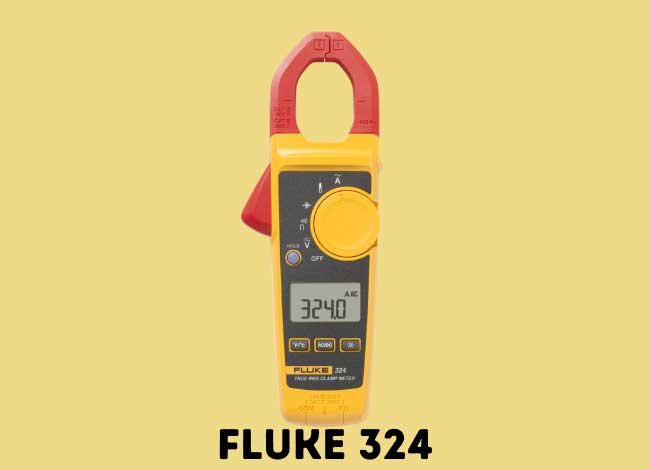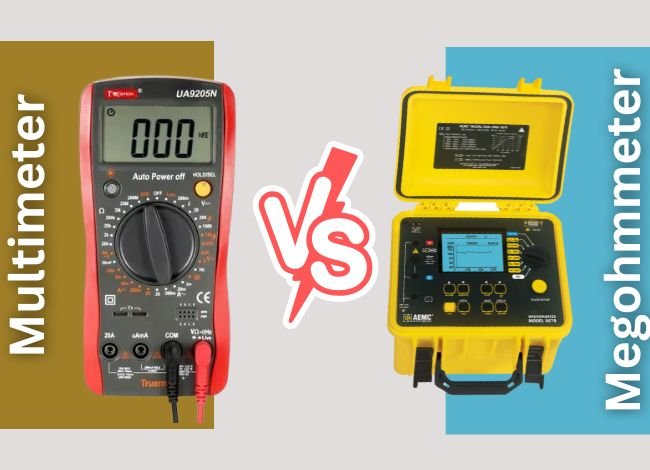Last Updated on February 16, 2025
Finding a high-quality and reliable multimeter can be overwhelming with so many options on the market. However, Fluke stands out as one of the most trusted brands, known for delivering precise, durable, and professional-grade multimeters.
Choosing the right Fluke multimeter for your needs ensures accurate and consistent results for electrical testing and troubleshooting. In this Fluke 87V vs. Fluke 179 comparison, we’ll break down the key differences, features, and performance of these two highly-rated models, helping you decide which one best suits your requirements.
Comparison: Fluke 87V VS 179 Multimeter

Although Fluke 87 and Fluke 179 have some similarities, they also differ in many ways. To begin with, the Fluke 87 V is slightly heavier than the Fluke 179 as it comes with a shipping weight of 2.7 pounds while the latter has a weight of 2.6 pounds. Also, when it comes to price, the Fluke 87 digital multimeter is slightly costlier than the Fluke 179 digital multimeter.
Difference Between 179 and 87v
Features and measurements |
Fluke 87V |
Fluke 179 |
| Low pass filter | Yes | No |
| Minimum Current AC & DC | 0.1 μA (0.00010 mA) | 0.01 mA |
| Relative mode | Yes | No |
| Motor Drive Measurement | Yes | No |
| Peak Hold | Yes | No |
| Duty cycle | Yes | No |
| Count | 20,000 | 6,000 |
| Micro Amps | Yes | No |
| Capacitance | 10pF | 1nF (1000pF) |
| Basic accuracy | .05% | .09% |
| Relative Reference Button | Yes | No |
| Maximum Temperature |
1994F (1090C) | 752F (400C) |
| Digit Display | 4.5 | 3.75 |
| Long battery life | Yes | No |
| Warranty | Lifetime | Limited |
| Details | Read Reviews | Read Reviews |
| Price |  Check Price Check Price |
 Check Price Check Price |
The 179 multimeter has a filtered mode that makes it simple for you to see the reading on a highly fluctuating input, while on the Fluke 87 DMM, you just push the “auto hold” button, and the meter locks onto a stable reading.
Another huge main difference is that the 87 V multimeter is not very accurate, especially at temperatures below freezing point, and can sometimes suffer from cell phone interference. This is not the case with the 179 multimeter. On the other hand, the 179 DMM lacks some features found on the 87 multimeter, such as power surge risk reduction and dual display resolution that enables you to see minor changes shown in the readings.
Related: Fluke 115 VS 117: Which is Better Multimeter to Buy?
Similarities Between 87v vs 179
The Fluke 87 vs Fluke 179 have a lot of similarities. First of all, these multimeters are digital and have a safety rating of CAT IV 600/CAT III 1000V. Also, they come with a built-in thermometer and have dimensions of 10.6×6.3×3.6 inches. Additionally, multimeters can function well in loud environments and have a long warranty period.
Fluke 179/EDA2 6 piece Multimeter Combo
The Fluke 179 True RMS multimeter is equipped with features that you need to troubleshoot and repair electronics and electrical systems. It functions well in loud, messy, and high energy areas of work. It has a built-in temperature, which makes it convenient as you don’t have to acquire another tool to test temperature. The display is large enough for easy viewing, and the backlit ensures that you continue to test plants even in the dark. The unique feature of this device is the display hold and auto hold.
With its manual and auto-ranging, taking different tests such as frequency, resistance, capacitance, diode test, and continuity is made easy.
 Check Price
Check Price
Features of the Fluke 179
- Display hold & auto-hold
- Measures resistance, diode test, and continuity
- Has both manual and auto-ranging
- Built-in temperature
- Measures frequency and capacitance
- Analog bar graph
- Large display screen
- Weighs 2.24 pounds
- Durable carrying case
- Lifetime warranty
Fluke 87V Digital Multimeter
This is another versatile and popular multimeter from Fluke. The Fluke 87V is an advanced tool with great troubleshooting capabilities. It is created to handle the complex signal, and that’s why it is suitable for industrial use. In addition, it can as well function in messy, loud, and high energy environments. The Fluke 87v digital multimeter is very easy to use as it has a dual display and a selectable filter. Moreover, the built-in temperature allows you to take temperature readings without using another tool. It can be used to measure continuity, frequency, resistance, capacitance, voltage, and current. With a limited lifetime warranty, this is a device that you can rely on for industrial use.
 Check Price
Check Price
Features of the Fluke 87V
- Large digit display with backlit
- Built-in thermometer
- True RMS AC voltage and current
- Measures frequency, resistance, resistance, diode test, current, voltage, and continuity
- Optional magnetic hanger
- Selectable filter
- Tested for safe use in CAT III 1000V/CAT IV 600V environments
- Alligator clips
- Holster
- Weighs
- Lifetime warranty
Related: Difference between Fluke 287 and 289
Why buy Fluke brand multimeter like 179 and 87V?
Starting in 1948, Fluke has been developing and coming up with a peculiar technology market, offering to test and troubleshoot capabilities that have developed to mission-critical status in the service and manufacturing fields. The brand is one of the top providers in the manufacturer, distribution, and service of electronic test tools and service industries.
All the Fluke multimeters are manufactured in the USA, where they meet all the market standards for quality multimeters. The work of the multimeter is to measure voltage, current, and resistance. However, some advanced tools perform more functions. Analog multimeters use a pointer to show results, while digital multimeters show the results in numerals.
Conclusion
These two multimeters are exceptional products that will serve both beginners and professional technicians. They’ve many outstanding features and can be used for a myriad of tests. Nevertheless, the Fluke 179 is slightly better than the Fluke 87 due to its accuracy and lower price. But all the same, the Fluke 87 is an amazing multimeter that still will function well for different environments. I hope this Fluke 179 vs 87V article was helpful.
Frequently Asked Questions (FAQs)
- What are the main differences between the Fluke 87V and Fluke 179?
-
- The Fluke 87V is designed for industrial applications with a higher resolution and accuracy, while the Fluke 179 is more suited for general electrical and HVAC work.
-
Which multimeter has better accuracy, the Fluke 87V or the Fluke 179?
- The Fluke 87V offers higher accuracy, especially in measuring low voltages and frequency.
-
Do both the Fluke 87V and 179 have True RMS?
- Yes, both multimeters have True RMS for accurate readings of non-linear AC signals.
-
Which multimeter is better for industrial use?
- The Fluke 87V is better for industrial environments, handling higher voltage surges and complex electrical systems.
-
Does the Fluke 179 have a temperature measurement function?
- Yes, the Fluke 179 includes a built-in temperature probe, while the Fluke 87V does not come with one (but supports it with an additional accessory).
-
Which multimeter has a higher voltage rating?
- The Fluke 87V can handle up to 1000V AC/DC, while the Fluke 179 is rated for 600V AC/DC.
-
Is the Fluke 87V or Fluke 179 better for beginners?
- The Fluke 179 is easier to use and more suited for beginners or general electricians, while the Fluke 87V has advanced features for professionals.
-
Which one is more expensive, the Fluke 87V or Fluke 179?
- The Fluke 87V is more expensive due to its industrial-grade features, while the Fluke 179 is more budget-friendly.
-
Do both models have a backlit display?
- Yes, both the Fluke 87V and Fluke 179 have a backlit LCD display, making it easy to read in low-light conditions.
-
Which one should I choose: Fluke 87V or Fluke 179?
- If you need a rugged industrial multimeter with high accuracy, choose the Fluke 87V. If you need a general-purpose multimeter with temperature measurement, the Fluke 179 is a great choice.





Very good and straightforward comparison and very helpful to someone who is confused by what each DMM offers. It boils down to one’s needs. Each will adequately and accurately cover most of these but the extras on offer and if needed will influence one’s choice.
I drained myself comparing these two Flukes specifically. I’ve always had some kind of DMM since childhood and finally can afford the best, but which one. Ended up going with the 179, mostly due to the price difference and what I actually need it for. I’m not in the profession, rather a serious DIY’er. I’ve just ordered the i1010 AC/DC clamp so I’ll be all set. Thanks for this video, it helped with my decision.